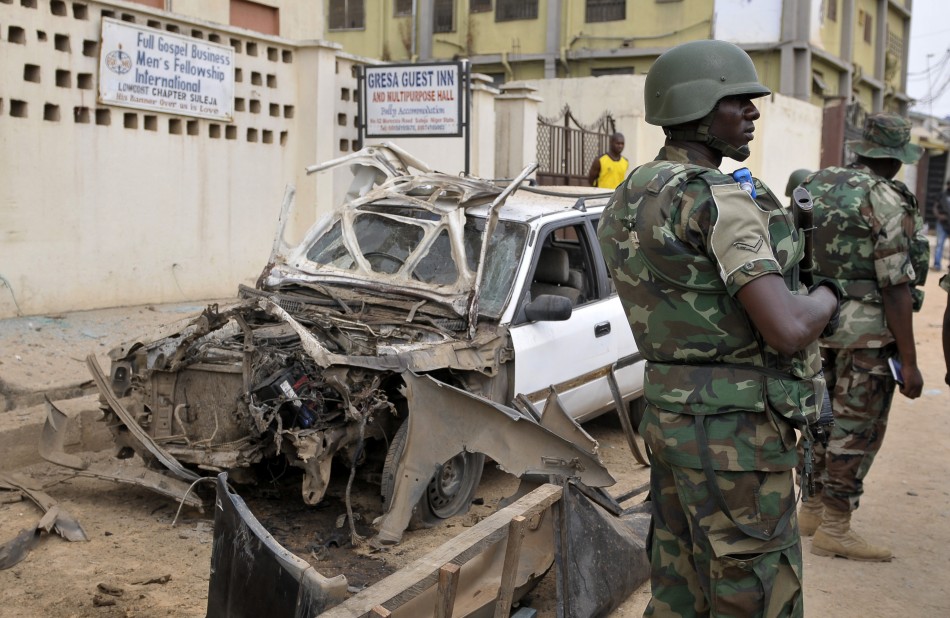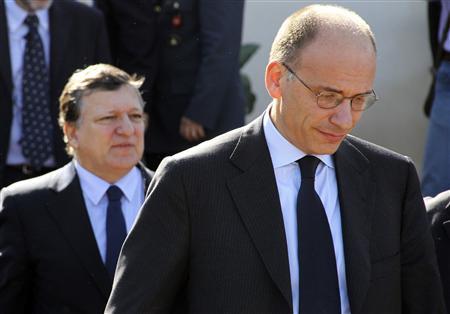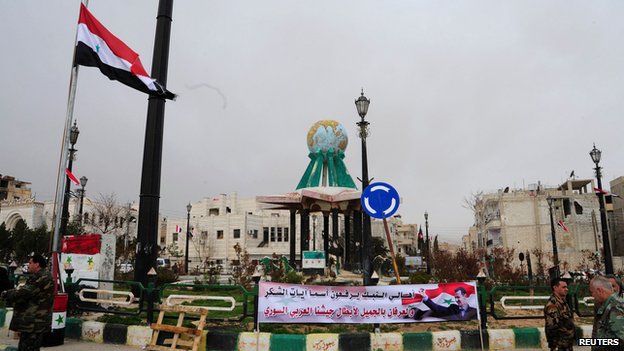By: James Marcus Bridger
Just two short years ago, the Islamist militant organization Boko Haram was discounted by government and intelligence officials as a spent force that lacked the organizational capabilities to threaten the state or endanger foreign interests. By 2011 however, the group had evolved from a small religious sect to a simmering regional insurgency: improvised explosives and drive-by shootings were replaced by coordinated attacks and suicide bombings. The most recent round of violence—which has targeted Christians living in Nigeria’s predominantly Muslim northeast—has left the administration of President Goodluck Jonathan scrambling to prevent the divided country from spiraling into sectarian violence. Western officials are also cautions, warning that the group is becoming more internationalist in its outlook and choice of targets and is forging links with Islamist insurgent groups across the Sahel region.
Boko Haram, whose colloquial moniker translates to “Western education is forbidden,” was responsible for up to 600 deaths in 2011. Seeking to create a strict Islamic state in northern Nigeria, the group has launched attacks against government and security installations, as well as Christian communities. Previously sequestered to the northeast of the country, Boko Haram’s August 2011 truck bombing of the UN headquarters in the capital, Abuja, demonstrated its expanded capabilities. The group’s choice of targets, regional expert J. Peter Pham contends, is “designed to show that the militants can strike anywhere and that they can make the country ungovernable for President Goodluck Jonathan.”

Over the Christmas weekend, more than 40 people were killed in a series of coordinated bombings and shootings targeting Christian worshipers. Attacks have since been a weekly occurrence. Boko Haram claimed responsibility for a New Year’s Eve bombing of a bar frequented by soldiers in one of the capital’s most secure areas. Attacks against Christians continued on 5 January when nine were killed in a church shooting. Two separate attacks the following day saw over 30 members from the Christian Igbo community gunned down, several of whom had been mourning the victims of the earlier attack.
Towards the Tipping Point
The greatest danger for the government is that Boko Haram will push Africa’s most populous country into a state of sectarian warfare. President Jonathan stated that the latest spiral of violence, claiming at least 80 lives in the last month, is “even worse” than the country’s 1960s civil war. The government declared a state of emergency in four northeastern states following the Christmas attacks, but the move has done little to deter violence. While a Boko Haram ultimatum caused thousands of Christians to flee south, Ayo Oritsejafor, head of the Christian Association of Nigeria, appealed to his followers to hold fast and defend themselves from “ethnic and religious cleansing.” Militant groups in the southern Niger Delta (who have been largely subdued since a government amnesty was offered in 2009) warned that they will be “forced to retaliate” for the killing of Christians if the federal government is unable to secure the country. In what may have been a religiously inspired reprisal, a crowd attacked a mosque in Benin city in the Christian-dominated south on 9 January; injuring ten. Observers have noted that Nigeria’s bloody 1967-70 Civil War was preceded by similar mass migrations, pogroms, and sectarian attacks.
Linked In
Boko Haram’s rise is a part of a larger trend that has seen violent extremism spread across the Sahel belt of northern Africa. Government forces in Mali, Mauritania, Algeria and Niger have recently engaged in skirmishes with al-Qaeda in the Islamic Maghreb (AQIM)—an emboldened terrorist group that has also intensified its campaign to kidnap and ransom Westerners in the region. On the opposite side of the continent, Somalia’s al-Shabaab continues to thwart the joint efforts of the African Union force (AMISOM), Kenya, and Ethiopia to destroy it. While all three militant groups began as localized responses to specific grievances, their outlook has increasingly become one of internationalist global struggle and cooperative links have begun to form between them.

The emir of AQIM, Abdelmalek Droukdel, has boasted that his organization is providing weapons and training to Boko Haram, a report confirmed by US intelligence assessments. Nigerian security officials also contend that the man responsible for the 2010 UN bombing, Mamman Nur, had received sanctuary and training from al-Shabaab in Somalia. These developments have been met with worry by Western officials. In November, the US House of Representatives’ subcommittee on counter-terrorism and intelligence identified Boko Haram as an “emerging threat” to the US and its interests. General Carter Ham, Commander of US Africa Command, contends that “if left unaddressed, you could have a [terrorist] network that ranges from East Africa through the center and into the Sahel.”
A Better Way Forward
The closing of the country’s northern border, imposed curfews, and an increased troop presence have thus far done little to bring meaningful security to Nigeria, nor to alleviate public concern. It appears that Abuja is now gearing up for a renewed military offensive, said to be the largest since the Civil War. In November, it was disclosed that the US Army has been assisting in this endeavor, deploying 100 Special Forces soldiers to provide the government with counter-insurgency training. It is unlikely, however, that a lasting solution can be bought with a military victory. A 2009 government offensive succeeded in capturing the group’s headquarters and killing hundreds of Boko Haram fighters, including the group’s founder and leader, Mohammed Yusuf. Despite the setback, the militants were able to rebuild a network of popular support in the northeast, forge international linkages, and carry out increasingly sophisticated attacks.
A more nuanced strategy of dealing with Boko Haram is required of both Nigeria and its international supporters. From an intelligence perspective, Abuja has failed. The government has been criticized for its inability to infiltrate the sect and forestall attacks, even when their date and location are publicly pronounced (as was the case with the Christmas bombings). Developing local intelligence is an area in which the US and other NATO and EU members can be of assistance, as was recognized by the US congressional subcommittee on counter-terrorism and intelligence. That said, any larger Western security presence in the country is unadvised. As a report from the Brookings Institution opines, Washington should avoid a “massive display of American counter-terrorism prowess,” as this would likely provoke a public backlash, as seen in Pakistan. With the US set to become more deeply engaged in West Africa for both security and economic reasons, it is important to address the prevalent view point that Washington cares only about protecting its oil interests, not the region’s citizens. Instilling respect for the rule of law and due process should be an essential component of counter-insurgency training. As the Brookings report recognized, the Nigerian forces’ use of extra-judicial killings during the 2009 crackdown fomented a deep sense of anger and generated sympathy for the Islamic sect.
For the Nigerian state, defeating Boko Haram requires addressing the underlying issues that allow the group to flourish. Northern Nigeria falls well behind the south in all indicators of wealth, literacy, and health. A military only approach would therefore serve to further alienate an already marginalized segment of the population. Invigorated efforts need to be made to promote job-producing growth through investment and infrastructure development in the northern states. Educational reform is essential in this regard (some northern states have less than a 5% literacy rate for women), but will be contentious given Boko Haram’s outright rejection of Western education. A compromise able to garner support from the local Muslim population is needed.
Underscoring all these prescribed initiatives is the need for dialogue between the government, elements of Boko Haram, and both Christian and Muslim religious leaders. It was only through negotiation, amnesty, and wealth redistribution that Abuja was able to end the simmering insurgency in the Niger Delta. A similar opportunity must now be seized in the north. Though their tactics are abhorrent, Boko Haram presents a number of legitimate grievances. A heavy handed strategy which fails to address these issues will push the group further towards a global jihadist ideology, making negotiations all but impossible.
Further Reading: Who are Nigeria’s Boko Haram Islamists?; Islamist Terror Network Gains Strength in Africa; Nigeria declares state of emergency; The Islamist Threat to Africa’s Rise in 2012; Boko Haram Seen Linked to Other African Terror Groups; Is Nigeria on the brink after north-south clashes?




